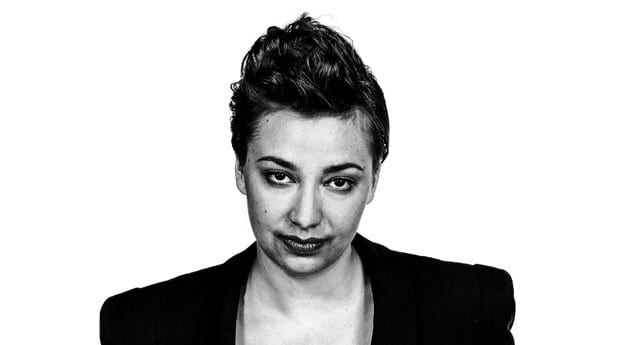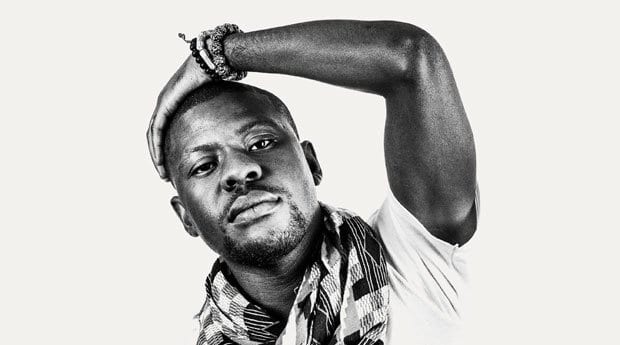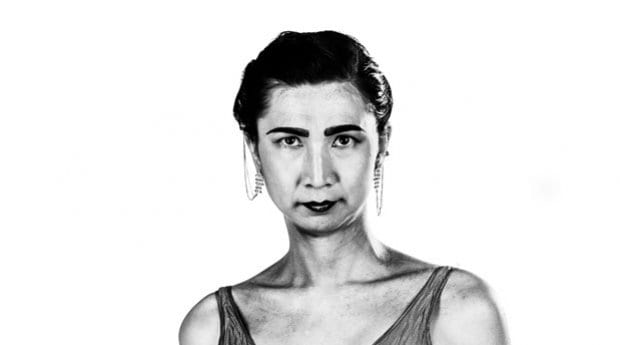
“It’s a dance club, a theatre space to see shows and was part of my own process of coming out and figuring stuff out.” - Mel Hague Credit: Tanja-Tiziana

“It’s a company I believe in. Giving me the courage to be able to say and feel what I need to write and not be afraid of it.” – Tawiah M’carthy Credit: Tanja-Tiziana
Can you imagine Toronto’s queer community without Buddies in Bad Times Theatre? Since its founding in 1979 by Sky Gilbert, Matt Walsh and Jerry Ciccoritti, Buddies has evolved from a forum for staged poetry at a former East End brewery to its current hub of queer culture on Alexander Street. And it’s about to unleash its 36th season of daring, sexual and unapologetic queer programming.
Some of next season’s notable curators and creators talked to Xtra about what they’re most looking forward to in the coming year and their gratitude to Buddies for preventing some artistic bad times.
Dramaturge Mel Hague thinks of Buddies fondly as more than just an artistic space. “I’m pretty damn gay, so Buddies has meant different things to me at different times in my life,” she says. “It’s a dance club, a theatre space to see shows and was part of my own process of coming out and figuring stuff out.”
Now beginning her first year as Rhubarb Festival director, Hague is about to access the institution from her most creative angle yet: “The wonderful thing about Rhubarb is the chance to create theatre that’s so immediate, with productions that meld so many people and so many minds.”
The Rhubarb Festival is a theatrical incubator that has seen enormous growth in scale and influence over its years. As director, Hague will curate the collection of submissions and may end up fostering another actor/director extraordinaire like Tawiah M’carthy, whose first incarnation of his now smash-hit Obaaberima (part of Buddies’ 34th season) had its world premiere there in 2009.
This season, in between performances of Obaaberima at the National Arts Centre and in Vancouver, M’carthy will be in residence at Buddies developing a brand new work entitled Black Boys. He and two actors — Thomas Olajide and Stephen Jackman-Torkoff (currently at the Stratford and Shaw festivals, respectively) — will look at “the black queer history of men in the metropolitan environment,” he says. “It’s a revision of history to what they are seen as now and a prediction of what they will look like in the future.” Black Boys will be a multidisciplinary project, using the black male body as an inspiration for film, movement and music.
“It’s so exciting to be a part of the Buddies family; they’re so supportive of all the work that I do,” M’carthy says. “It’s a company I believe in giving me the courage to be able to say and feel what I need to write and not be afraid of it.”
Gein Wong, presenter and co-creator of two 36th-season works (and recent Ken McDougall Harold Award winner for emerging director) is also no stranger to Buddies’ artistic ethos: “Buddies in Bad Times has a legacy of graphic desire in a queer institution that influences all of North America,” she says. “It’s one of the reasons I’m in Toronto — having a theatre that’s lasted so long, in a highly visible place for younger folks, identifying as queer. Buddies is a light at the end of the tunnel.”
Wong will be directing The Femme Playlist, by Catherine Hernandez, which chronicles Hernandez’s life as a queer, femme woman of colour. According to Wong, “it’s a laugh-so-hard-your-belly-hurts funny” immersive experience that also incorporates traditional fan dancing and singing.
The Femme Playlist will open right before the landmark reinvention of what Wong calls a “super cabaret performance experience.” Insatiable Sisters is a collection of performances grouped around a similar theme — this year it’s witches! — and rehearsed together to make a seamless, singular cabaret.
“Historically, witches and magical healing people were queer and trans people, and there’s lots of our history in that lineage,” Wong says. “Witches as we know them today are the result of colonization and the church. It’s time to bring back the real magic.”
With hundreds of artists, curators and contributors involved in this 36th season at Buddies in Bad Times Theatre, finding something evocative, titillating and downright entertaining will be as easy as it’s always been.

 Why you can trust Xtra
Why you can trust Xtra


